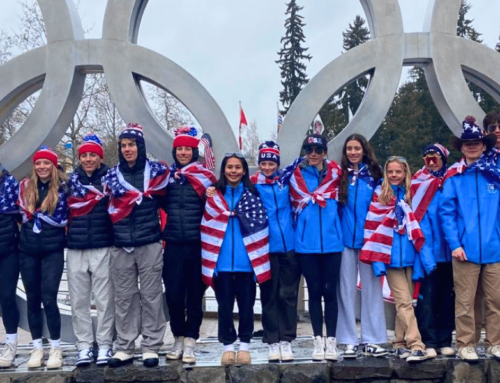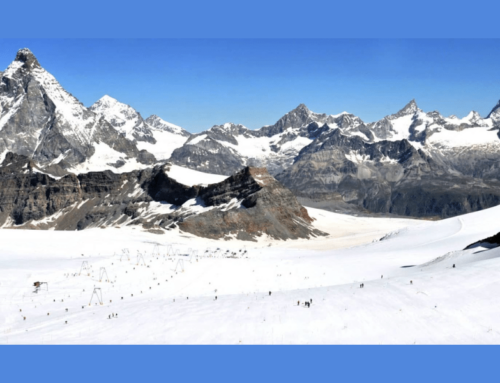SkillsQuest Heats Up Buck Hill Before Snow Flies
Last month, just outside of the Twin Cities in Burnsville, Minn., Buck Hill hosted the first ever USSA SkillsQuest competition on an artificial skiing surface.
SkillsQuest is a national fundamental skill development tool. In the long run, it is believed that competent fundamental skiers will go much further in the sport. The USSA Development staff has a goal for U12-16s to be exposed to SkillsQuest content twice each winter: once in the beginning of the season to set a standard and then again at the end to gauge improvement. In between and throughout the winter, USSA encourages clubs and coaches to use the SkillsQuest exercises as touchstones for ongoing development.
Earlier in the summer, Buck Hill installed a Nevaplast artificial snow surface across much of its current hill, providing an incredible new opportunity for young racers to develop fundamentals even when there is no snow on the ground.
Already famous for producing such skiers as Lindsey Vonn, David Chodounsky, Michael Ankeny, and many others, the small Midwestern club is poised to continue its tradition of producing high-caliber racers.
Rocky/Central Region Alpine Development Director Darlene Nolting oversaw the fully scored event, which was won by juniors Myles Nourse and Becca Devine. Nolting managed to walk away with many positive observations which she hopes continue into the approaching winter.
“It was great,” Nolting says. “For skill work, that surface is perfect because the athletes really have to work on balance. If you ski too fast, you burn your edges. You have to ski slow and in control and really work on fundamentals. I think it’s going to be an advantage for the Buck Hill athletes who are able to spend the extra time working on fundamentals before the snow hits.”
Although skiing on the Nevaplast material is not exactly like skiing on snow, the basic movements and skills required are the same and are transferable once athletes make their first turns on the white stuff.
“The skiing itself is obviously different than snow but for what it is, it’s pretty similar,” explains Buck Hill coach Jacob Olsen. “What we found is that you can actually carve turns – that’s the really surprising part – but it’s only to a certain point. If you want to train gates, if you go much past 30 degrees with your knees or try to increase edge pressure to try and change your turn shape, you start to lose the edge on the plastic.”
“You can get away with poor balance on snow, where on the Nevaplast, if you have poor balance and are not centered on the ski and are working the front of the boot, you’ll fall. I think that is going to be really transferable,” adds Nolting.
“The kids are just pumped up to get out and use their skis and get ready for the season.”
– Jacob Olsen
Olsen says that although the Nevaplast might not be the best option for full-on gate training, the ability to be on skis year-round is invaluable for skill acquisition as all of the SkillsQuest drills work very well on the surface.
“For us in the Midwest, it’s just a chance to get on skis and an excuse to get out there,” Olson says. “We’re typically a month-and-a-half behind everybody else with snowfall and getting on to our skis. For a lot of Midwest clubs, we struggle to give the appropriate time to drills and fundamentals outside of gates. The kids are just pumped up to get out and use their skis and get ready for the season.”
Even though the Buck Hill event was a fully scored competition, developing these skills in a non-scored environment can also be beneficial. Nolting, for example, puts on a four-day skills camp over Labor Day weekend that focuses on one skill per day, although each day ends in a scored test.
“I find value in assessing and making that judgment,” Nolting explains. “Many coaches say, ‘Oh, that’s so subjective, you’re judging.’ Well, coaches judge every day out on the hill what they are going to determine for their athletes to ski fast. They make that judgment call every day. I will say that the focus of the athlete is raised when they know they are going to be evaluated. … When the kids know there is some type of evaluation, their focus on the task at hand is exponentially greater.”
In the eastern part of the country, regional youth coordinator Tom Ashworth has been experimenting with completely non-scored events with some encouraging results.
“Here in the East, we’re having a lot of success running SkillsQuest as unscored and scored competitions,” Ashworth says. “Particularly for the unscored ones, we are finding that we are able to get athletes more volume through each station and the opportunity to coach the athletes as they move through the station. The skill acquisition is invaluable. Instead of maybe getting two runs through a station in a scored event, you might get four or five.”
Ashworth says that especially for younger athletes, focusing more on skill acquisition through repetition rather than competition can be great for both athletes and coaches.
“I think the scored piece is great, it teaches competition skills, but I think with the younger kids, having a non-scored piece really affords a great opportunity to practice learning, skill acquisition, and skill development,” he says. “It’s a lot less stressful on the kids. The thing with the unscored piece is to try and get as much interaction with the most amount of athletes as possible.”
As we know, no two kids are the same. Finding the right balance between more informal practice and scored competition can be a challenge, but hopefully these expert opinions can guide the development of an effective program to teach essential skills to all athletes.
Disclosure: USSA and SkiRacing.com are media partners.






















